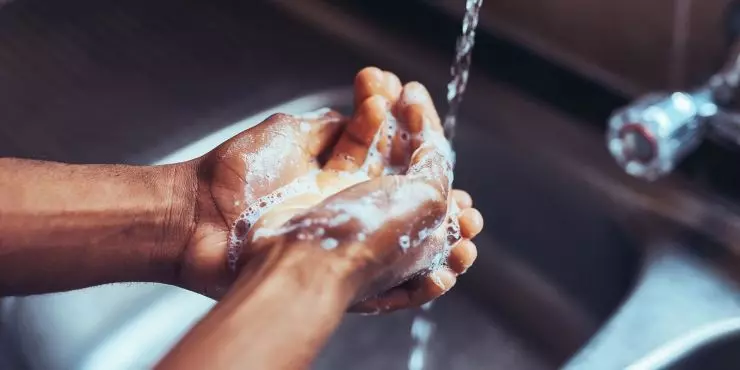Flu season is upon us, and with it comes the rampant spread of sniffles, coughing, sneezing, and wheezing. The CDC stresses the importance of washing hands with soap and water as the most effective way to eliminate germs, which are the primary culprits of illness. Handwashing stands as the foremost measure to maintain health and halt the transmission of germs.

Understanding Handwashing's Vital Role
Grasping the significance of handwashing is crucial, as dirty hands can make you sick. Germs like Salmonella, E. coli, and norovirus, frequently found in feces from humans or animals, are notorious for causing diarrhea and can also contribute to respiratory infections such as adenovirus and hand-foot-mouth disease.
Such pathogens may contaminate hands following visits to the bathroom, diaper changes, or while handling raw meats coated with unseen traces of animal feces. Alarmingly, a gram of human feces – equivalent to the weight of a paper clip – can harbor up to a trillion germs.
Furthermore, germs can transfer to hands upon contact with objects contaminated by others' sneezes, coughs, or touches. If these germs are not washed away, they can be easily transmitted from person to person, resulting in sickness. Consider how frequently you touch objects in public and subsequently touch your face, nose, or mouth – this action transfers germs directly into your body.
As such, practicing good hygiene is crucial in preventing the spread of illnesses. This includes regularly washing your hands with soap and water for at least 20 seconds, covering your mouth and nose when sneezing or coughing, and properly disinfecting commonly touched surfaces. Singing the "Happy Birthday" song twice to yourself can be a good estimate of how long to wash your hands. Be sure to clean all areas including under nails and in between fingers. If soap and water are not readily available, alcohol-based hand sanitizers can also be used.
But beyond just protecting ourselves from illness, practicing good hygiene also means being considerate of others. By taking preventative measures against spreading germs, we not only protect our own health but also that of those around us – particularly those who may be more vulnerable to illness such as young children or elderly individuals.
By incorporating these habits into our daily routines, we not only protect ourselves but also contribute to maintaining a healthier environment for everyone.
When In Doubt, Wash Your Hands
By now, it's evident that handwashing is vital to preventing illness; when in doubt, wash your hands! For a more in-depth guide on proper handwashing techniques, visit our article, "5 Simple Steps of Basic Handwashing," and fortify your defenses against germs.